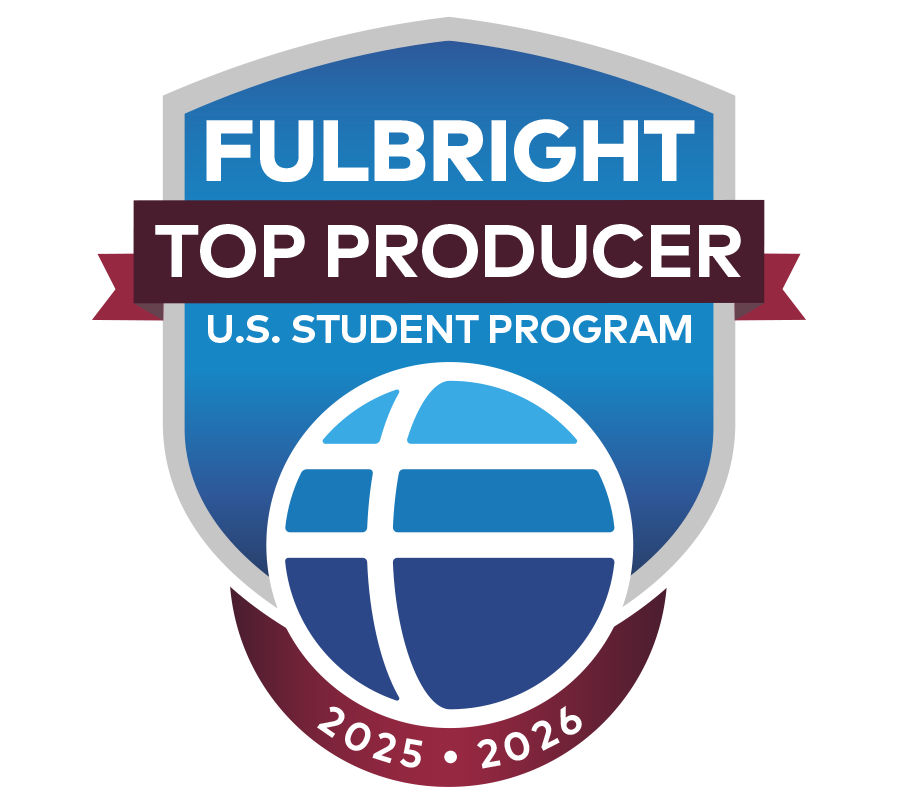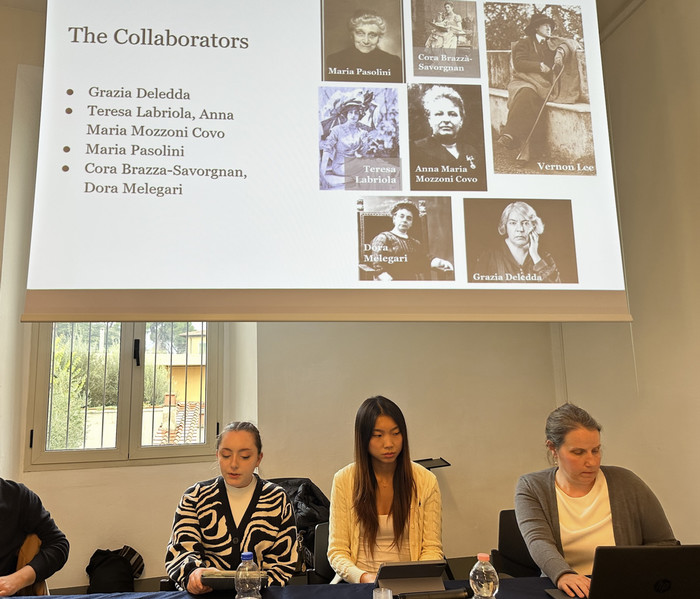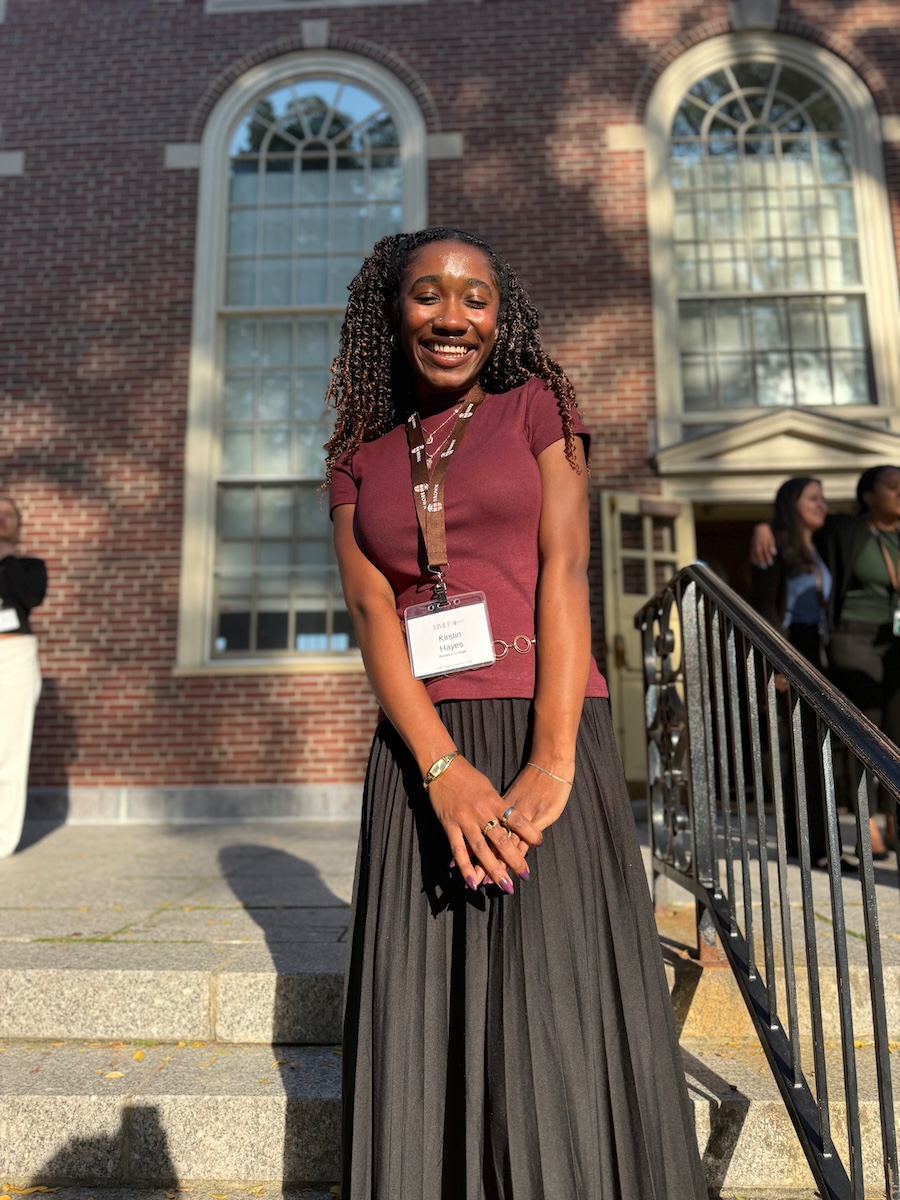Using Computer Science to Shed Light on Congress
By Tom PorterDouble majors Luca Ostertag-Hill ’20 and Jasper Gordon ’21 are combining their academic skill sets over the summer, fusing political science with computer science and building web tools to portray the complexity of voting patterns and strategic behavior on Capitol Hill. They’re among the more than 200 Bowdoin students awarded research fellowships over the summer.
The Visual Aspect
Gordon is the recipient of a Computer Science Student Fellowship titled Visualizing Dynamic Influence Networks in Congress and Supreme Court. His faculty supervisor is Assistant Professor of Digital and Computational Studies and Computer Science Mohammad Irfan. Gordon describes in his own words the aims of the project, why he chose it, and what he hopes to learn.
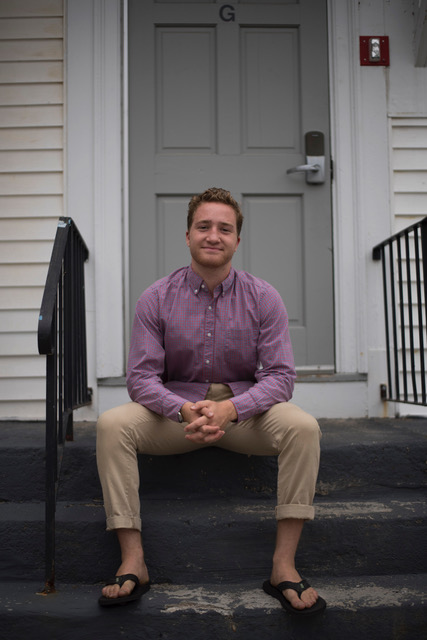
The broad focus is to find a clear and effective way to demonstrate the influence networks that affect congressional voting and interactions. I will accomplish this by creating a dynamic web-based visualization tool, similar to those you can find on websites like The New York Times. Beyond the complexity of the coding, the main challenge of this project is simply how to convey the effect every US senator has on their peers clearly on one screen, when there are 100 senators all connected in an intricate web.
As a government and computer science double major, this project interested me on a variety of levels. First off, the visualization adds an aspect of creativity that thoroughly excites me. Computer science can be liberating and rewarding, but it is rare to have the opportunity to create something that will actually appear on the screen. Second, US politics is a complex and ever-changing subject, and often this complexity works to push people away, further preventing thoughtful engagement from the general public.
By creating a visual tool to decipher, reconfigure, and express these complexities in an easily consumable manner, I am hoping to give people a new way to understand politics and to be informed. I could learn these computer skills looking at any subject or data source, but it feels far more rewarding to work on a project that combines my two passions as a student.
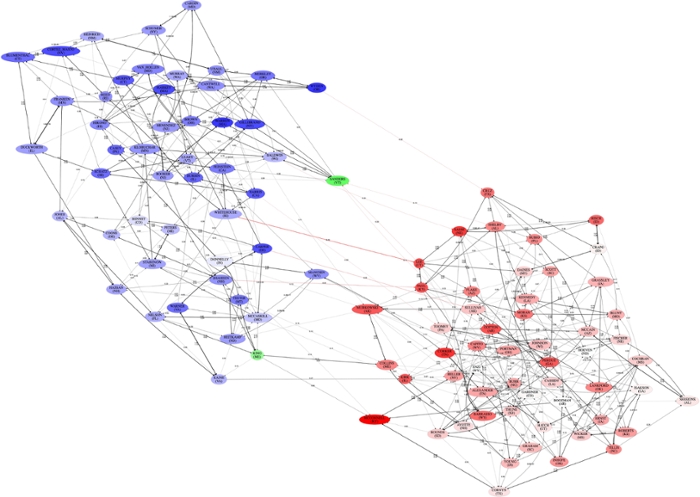
Predicting the Senate
Ostertag-Hill is the recipient of a Freedman Summer Research Fellowship in Computer Science. His project is called Influence Networks in the US Senate: How Context Impacts Legislative Behavior, and he is also working with Professor Irfan.
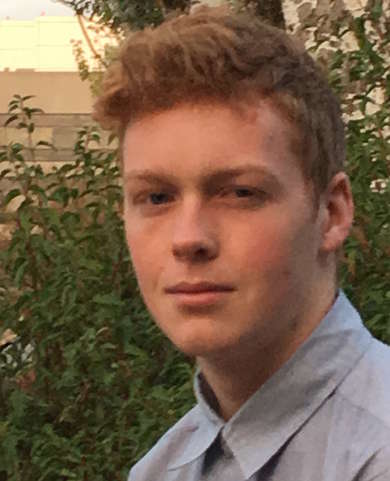
I am studying social influence in networked multiagent systems.
The research focuses on the US Congress as a real-world scenario of these networked systems, where the voting behavior of a senator depends on influence from other senators.
We aim to combine several prior projects (worked on by Tucker Gordon ’17—Jasper Gordon’s brother!— and Andrew Phillips ’19) to produce a more accurate model for predicting Senate voting.
Their work with Professor Irfan allowed the model to take bill context into account when predicting voting outcomes.
As a computer science and government double major, I wanted to work with Professor Irfan on the social influence project specifically, as it offered me a chance to conduct research that touched on both of my disciplines at Bowdoin.
Furthermore, Tucker Gordon (see above) attended the same high school as me in Portland, Oregon, and recommended Irfan as a stellar professor to work with.
My initial weeks of research were dedicated to reading academic papers on game theory in the Senate and working my way through the mathematical proofs that formed the basis of the model. At the moment we are in the process of testing the model.
The last few weeks of my research will focus on conducting experiments and, hopefully, helping to write a conference paper.
The biggest takeaway from my summer research thus far is the importance of spending time initially to fully understand the project, even if that requires reading lengthy papers several times.
Without this early focus on the foundations of the project, later work becomes increasingly more time intensive.
A third student, Liam Juskevice ’21, is also using computer science in a political context.
He is creating a website for a congressional database for a Gibbons Summer Research Program fellowship. The website will showcase research results from Professor Irfan’s group in an interactive manner and will also make various datasets publicly available.
My fellowship is centered on BearGov, an ongoing web project at Bowdoin intended to present information about the US Congress, such as members from different years, voting records, etc., in an easily accessible manner. Essentially, I am improving the site to get it closer to the point where it’s actually ready to be launched.
